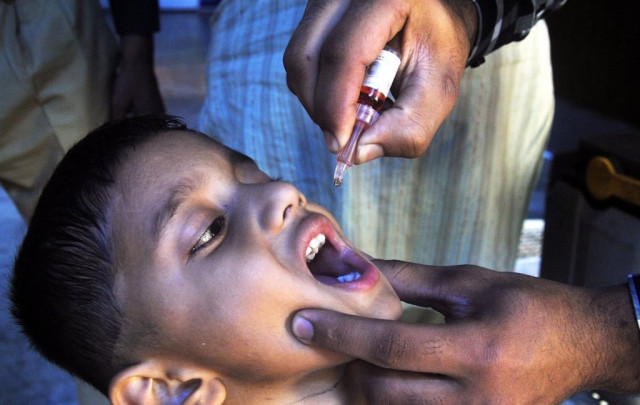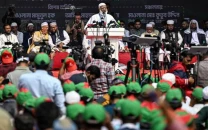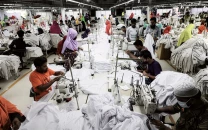WHO hits back at anti-vaccine deniers
Just because a disease seems long gone, there is no reason to rein in vaccination against it, according to the WHO.

"We have a huge proportion of people who believe in vaccines. They need to help us convey the messages," he added. PHOTO: ONLINE/FILE
"The impact of vaccines on people's lives is truly one of the best things that one could see out there," said Jean-Marie Okwo-Bele, head of the UN health agency's immunisation and vaccines division.
Opposition to routine vaccination of children against contagious diseases such as measles and whooping cough has been on the rise in recent years, notably in the United States and Britain.
A hardline minority disputes the necessity of vaccination outright, while doubters focus on fears such as the alleged links between measles vaccines and autism, rejected by the overwhelming majority of scientists.
"We're trying hard to contain and reverse the trend," Okwo-Bele told reporters.
"We have a huge proportion of people who believe in vaccines. They need to help us convey the messages," he added.
The total or near-complete disappearance of many killer or crippling diseases in rich nations has bred complacency, according to the WHO.
"The important thing about complacency is that the number of susceptible people who resist or reject facts and information will accumulate, and the disease will come back, as you're seeing in the United States with measles and whooping cough, which are terrible diseases," said WHO immunisation expert Tracey Goodman.
"It's a tragedy that could be avoided," she said.
Just because a disease seems long gone, there is no reason to rein in vaccination against it, according to the WHO.
"All of this needs sustainability. For polio, it's not because your country has been polio-free for 10 or 15 years that there is no risk, so long as the disease has not been completely wiped out worldwide," said Okwo-Bele.
Rolling back vaccination in some countries also undermines the global fight against disease, the WHO warned.
"When we look at the number of people being vaccinated each year, for childhood vaccination we're seeing close to 85 per cent being vaccinated, so this is still really good," Okwo-Bele said, underlining that up to three million lives are saved as a result.
"But each new cohort must be vaccinated. We will reap the full benefits of vaccines only if all individuals in all communities receive the vaccines they need. And clearly this is a shared responsibility," he added.
Developing countries have seen resistance in some areas to vaccination, for example in northern Nigeria and Pakistan where polio immunisation campaigns have been dubbed as a foreign conspiracy by local opponents.
And war also takes its toll, with polio rearing its head in Syria, previously free of the disease thanks to widespread immunisation.



















COMMENTS
Comments are moderated and generally will be posted if they are on-topic and not abusive.
For more information, please see our Comments FAQ